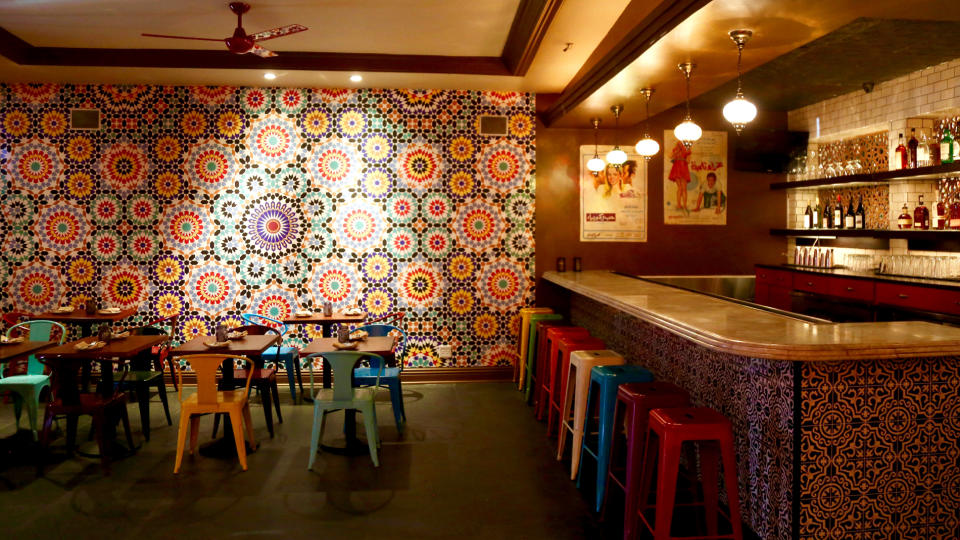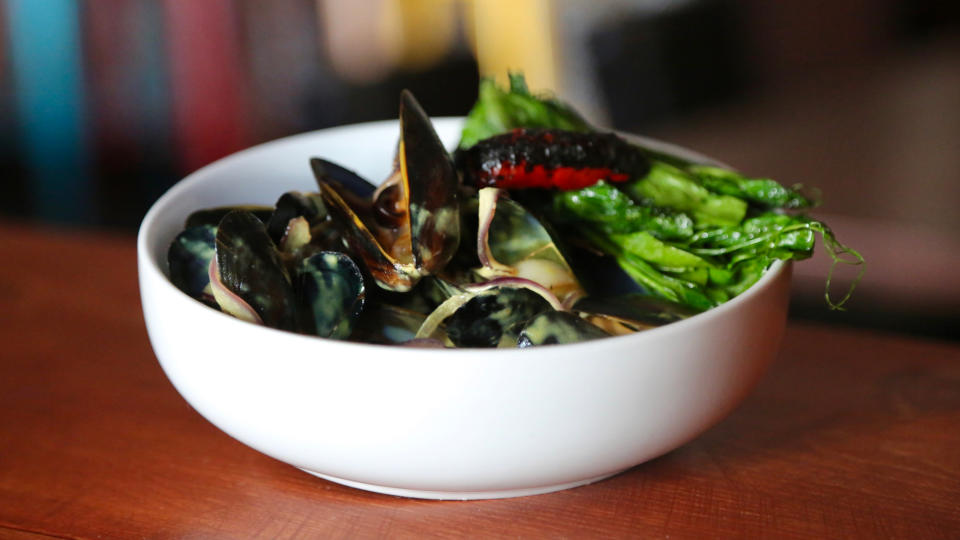Farida Brings Dishes from the Mountains of Lebanon to Hollywood
On a Day Without Immigrants, a handful of Los Angeles operators closed one or a few of their restaurants. Hollywood restaurant mogul and chef George Abou-Daoud closed all eight of his places.
"It's not easy to do financially, but it was important to send a message," says Abou-Daoud, who recently opened modern Middle Eastern restaurant Farida on Sunset Boulevard and also runs Bowery, Delancey, Bowery Bungalow, The Mission Cantina, Twins Sliders, Tamarind Ave. Deli and Mercantile. "This decision was based on the entire world of food, not just restaurants but also farms and grocery stores and food production. A lot of the people that feed Americans are new immigrants. People don't realize how much of this is based on the back of immigrants."
Abou-Daoud was born in New York City to an Egyptian-Lebanese father and a Lebanese-Palestinian mother.

© Bowery St. Enterprises
"My dad was born in Cairo," Abou-Daoud says. "That side of the family is from Cairo, Alexandria, Beirut and Haifa. On my mom's side, her family is from Beirut, Haifa and Jerusalem."
Abou-Daoud's mother, who had previously lived through the 1948 Battle of Haifa, came to the United States as a refugee from Lebanon. His dad supported the family by working as an accountant during the day and a hotel desk clerk at night.
Abou-Daoud, who still has a cellphone number with a coveted 212 area code, moved to L.A. for a job in private equity after graduating NYU's Stern School of Business. Then he created a restaurant empire that began with the 2004 opening of Bowery.
Abou-Daoud didn't plan to serve Middle Eastern food in his restaurants at first. But a decade later, he decided to riff on the flavors of his heritage at Bowery Bungalow in Silverlake. Now at Farida, he's really going deep as he redefines Middle Eastern food in L.A.
"I didn't want to do the typical thing," says Abou-Daoud, who designed Farida with bright colors, from the walls to the tiles to the chairs. "If you go around the world to a Middle Eastern restaurant, the menus are very similar. I wanted to do Middle Eastern with a different feel, using Middle Eastern technique and ingredients, which crosses over with California ingredients: olives and almonds and wine and grains. I feel like I'm introducing this food to new people."
Farida serves lamb awarma, a dish of lamb cooked in its own fat that Abou-Daoud learned about while visiting the mountains in Beirut where his mother's family lived.

© Bowery St. Enterprises
"Up there, they slaughter the animals and cook them in their own fat with spices and then they preserve it," he says. "That's how they have meat in the wintertime."
At Farida, Abou-Daoud has lamb sitting in fat inside a refrigerator for a month. (The health department requires the refrigeration.) Then he riffs on the dish by adding lamb cracklins and beet chips, as well as eggplant makdous. The latter is baby eggplant that's cooked, dehydrated for a day, stuffed with garlic, walnuts and spices, and then cured in olive oil for a month.
Related
Abou-Daoud is also introducing Hollywood to kishk, something he hasn't seen on other menus in America.
"That's bulgur wheat soaked in sheep's milk and yogurt," says Abou-Daoud, who serves kishik with spicy lamb riblets.
Farida also makes a lamb flatbread influenced by the little lamb pies Abou-Daoud found vendors selling in Baalbek, on the eastern side of Lebanon. ("They use lean and fat lamb with 25 or 30 other things, spices and tahini and yogurt and pine nuts," he says.)
For Farida's babaganoush, Abou-Daoud uses smoked eggplant. You can also start your meal with Moroccan lavender crepes. Farida has both traditional red harissa and a green harissa Abou-Daoud makes with poblano, serrano and jalapeno.
The green harissa is a reminder that, as Abou-Daoud likes to point out, anybody who's eaten street tacos in L.A. will see some similarities in Middle Eastern food. Al pastor, after all, was directly influenced by shawarma, and then there are familiar ingredients like cumin, garlic, lemon and cilantro.
It all goes back to understanding how the world co-exists and knowing where you want to go but also where you came from. Farida is a Middle Eastern restaurant with its eye on the future, but it's named after Abou-Daoud's grandmother.


